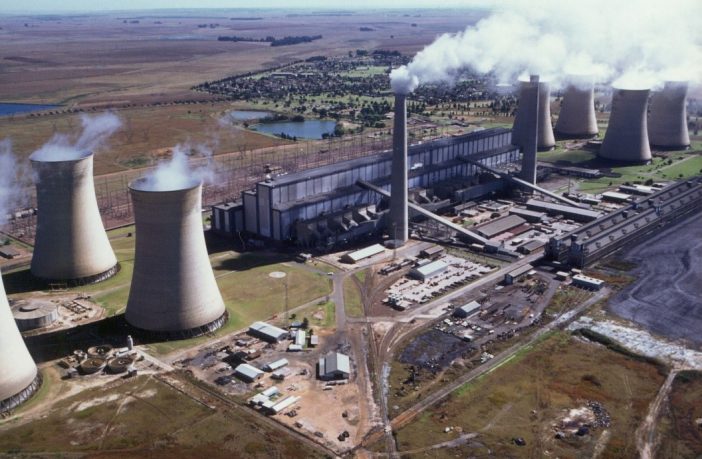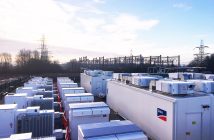Opinion
- South Africa has long been an international outlier as a producer and consumer of coal.
- Over the past decade, however, fundamental changes in electricity technology and the risks posed by the climate emergency have profoundly disrupted the value chain both nationally and internationally.
- In these circumstances, policymakers and key stakeholders face hard choices if they are going to manage the transition away from coal – which is inevitable – so as to maximize the benefits and manage the risks and costs.
This emerged as a key theme from a research report entitled “The coal value chain in South Africa” released by Trade and Industrial Policy Strategies (TIPS) yesterday. The report was authored by TIPS senior economist Neva Makgetla and TIPS economist Muhammed Patel.
According to the report, in South Africa accounted for 3,6% of global coal production compared to 0,4% of the world’s gross domestic product and 0,8% of its population. In the 2010s, coal fueled over 80% of South African electricity and generated 5% of its exports, while Sasol’s oil-from-coal refineries produced a fifth of the national petrol supply. Coal also generates 60% of South Africa’s greenhouse gas emissions, and in per-person terms emits twice as much as other upper middle income economies outside of China. Eskom alone accounts for almost half of South Africa’s total emissions, and Sasol for nearly 15%.
Makgetla and Patel argue that “it is understandable that with coal being so deeply embedded in the South African economy as well as in state systems, an energy transition will be inherently disruptive and controversial.” Whilst acknowledging this, they stress that “delaying or weakening decisions, however, would only add to the ultimate costs without securing sustainable benefits.”
The kind of issues policy makers and stakeholders need to balance is how to “value the long-term impact of the climate emergency over the immediate challenges of poverty, inequality and joblessness; balancing benefits to society as a whole relative to the interests of actors directly in the coal value chain; and the future of Eskom, a major state agency in itself.”
Makgetla and Patel argue that the coal value chain is “mired in a classic process of creative destruction”, as new technologies undercut it systematically. Essentially, global efforts to promote cleaner energy vastly reduced the cost and increased the flexibility of generation using renewable sources and gas. As a result, South Africa has no real choice except to transition away from coal over the medium to long term. The authors point out that from the late 2010s, “clinging to coal increasingly raised both the cost and the unreliability of the national grid.” It contributed to escalating electricity tariffs, which more than doubled from 2008, as well as accelerating loadshedding.
The “hard policy choices” relate, first, to how quickly to move away from coal-based generation, given the transition costs – above all, writing off some assets and reserves, and the associated risk of job losses. The coal value chain as a whole employs around 200 000 formal workers, almost all four districts of Mpumalanga – eMalahleni (Witbank), Steve Tshwete (Middelburg), Govan Mbeki (Secunda) and Msukaligwa (Ermelo). Thus, a second question becomes how much effort and resources to put into helping workers, small businesses and their communities to develop alternative livelihoods over the next decade or so. That in turn raises a third set of issues: how to capacitate the responsible government institutions to secure consistent implementation of key decisions around the transition, while promoting constructive engagement and action from stakeholders and civil society. The authors argue that would require an overhaul of state governance in the coal value chain, which they currently describe as “fragmented” between a wide range of agencies.
Makgetla and Patel propose that in the short run, critical steps to ensure a more equitable and efficient transition away from coal comprise the following:
- Freezing investment in new private coal plants, including the 3,5 GW coal plant currently proposed for the Musina Makhado Special Economic Zone in Limpopo that would make it virtually impossible to achieve national commitments on reducing emissions.
- Lifting unnecessary regulatory limits on investment in renewable capacity and storage, including restrictions on Eskom investment in cleaner energy sources.
- Encouraging the aluminium and ferro alloy refineries and Sasol to safeguard their longer-term export prospects by developing cleaner energy sources and introducing electricity-saving processes as rapidly as possible.
- Reviewing the timeline for closing down coal plants, as proposed by Eskom itself.
As highlighted, the fragmentation of government oversight over the coal value chain makes it harder to manage the transition away from coal. As a result, there is no uniform position and disagreement exists around a range of issues from building new coal capacity to how fast to move in reducing emissions and other coal-based pollution (as well as the status of existing incentives and penalties). Other areas of disagreement focus on how much private competition Eskom should face; whether the state should continue to incentivise energy-intensive metals refineries, including through subsidies on Eskom electricity and how much the state should subsidise Eskom itself.
Link to full report HERE
Author: Bryan Groenendaal
Trade & Industrial Policy Strategies (TIPS) is an independent, non-profit, economic research institution based in Pretoria, South Africa. It was established in 1996 to support economic policy development, with an emphasis on industrial policy, in South Africa and the region. TIPS has three main areas of work: trade and industrial policy; inequality and economic inclusion; and sustainable growth.











